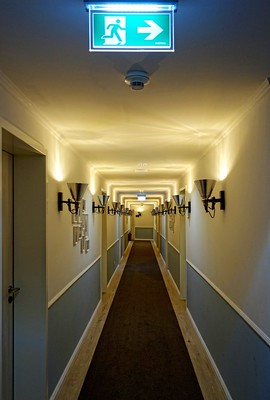The pandemic has ensured that no one has had a really good year. (Except Eric Yuan.) Nothing has worked out as expected, and 2021 is shaping up to deliver more of the same. The pandemic is (hopefully) a “black swan” event, but its impact will continue for years – maybe even decades. It did create the opportunity to look at taxpayer-funded risky investment plans to see how well they’ve performed.
The State of Iowa might qualify as the home of risky investment plans. The standard gambit is that a city/county/state borrows money to build a convention center/hotel/arena/entertainment complex. The convention center/hotel/arena/entertainment complex will most assuredly pay for itself while simultaneously generating serious cash for the city/county/state.
(Stop me if any of this sounds familiar.)
The city/county/state goes all-in on a big bond issue to build the convention center/hotel/arena/entertainment complex. The city/county/state does all of the right things. It:
- Hires a hotel operator
- Sells the naming rights to the complex
- Books events from far and wide
For whatever reason – or for a thousand reasons – the revenues never quite match the projections. Hotel occupancy isn’t quite where the projections placed them. That throws off both the hotel revenues, and the hotel-motel taxes the city/county/state was supposed to collect. The crowds never quite materialize in the numbers the “experts” predicted. That throws off the restaurant revenues, and the associated beer, wine and liquor taxes. Businesses that pay higher-than-market rents for space near the convention center/hotel/arena/entertainment complex don’t make enough to justify their leases.
Revenues aren’t guaranteed, but bills are
But the bills for the debt payments always arrive precisely on time. They show up like clockwork, regardless of what’s happening to the revenues. According to David Swenson, an economics researcher at Iowa State University:
“The belief was that they would pay for themselves,” he said. “But the people who studied this stuff concluded that none of them pay for themselves, and they wind up being heavily subsidized. The taxpayers really didn’t benefit. In fact, they had to pay more taxes.”
None of them – the publicly financed projects – pay for themselves. Public bodies go for risky investment plans because they believe the overly optimistic income projections.
Which – as a rule – never materialize.
Des Moines, Cedar Rapids, Polk County, Coralville, Waterloo, Moravia, the State of Iowa. They all went to the casino with taxpayer-backed risky investment plans, and they’ve all lost money. Tens of millions of dollars.
Coralville has a $30 million budget. Its leaders issued $340M in bonds – more than 10 times the city’s annual budget – to build a convention center complex. Polk County expects to eat $14M-$20M in losses from event cancellations at the Iowa Events Center during the pandemic. The Cedar Rapids city government won’t even admit how much it expects to lose on its $100M convention center this year.
These risky investment plans always sound better than they perform. The projections are always too rosy, and the taxpayers lose staggering amounts of money.
WCC’s own risky investment plans
WCC has already experienced this phenomenon with the Health and Fitness Center. The self-supporting HFC – lost money last year and has no hope of returning revenue to WCC this year. The bond debt on this dog accelerates past $1M every year from 2021 until 2027. 4,500 of the HFC’s 7,000 subscribers have canceled or “paused” their membership. That’s about two-thirds of the total user base. And that revenue was supposed to pay the building’s debt and maintenance costs.
The WCC administration has tucked a hotel and convention center neatly into its current Master Plan. It’s supposed to pay for itself. And it’s going to generate some serious cash for WCC.
Photo Credit: txmx 2 , via Flickr





























